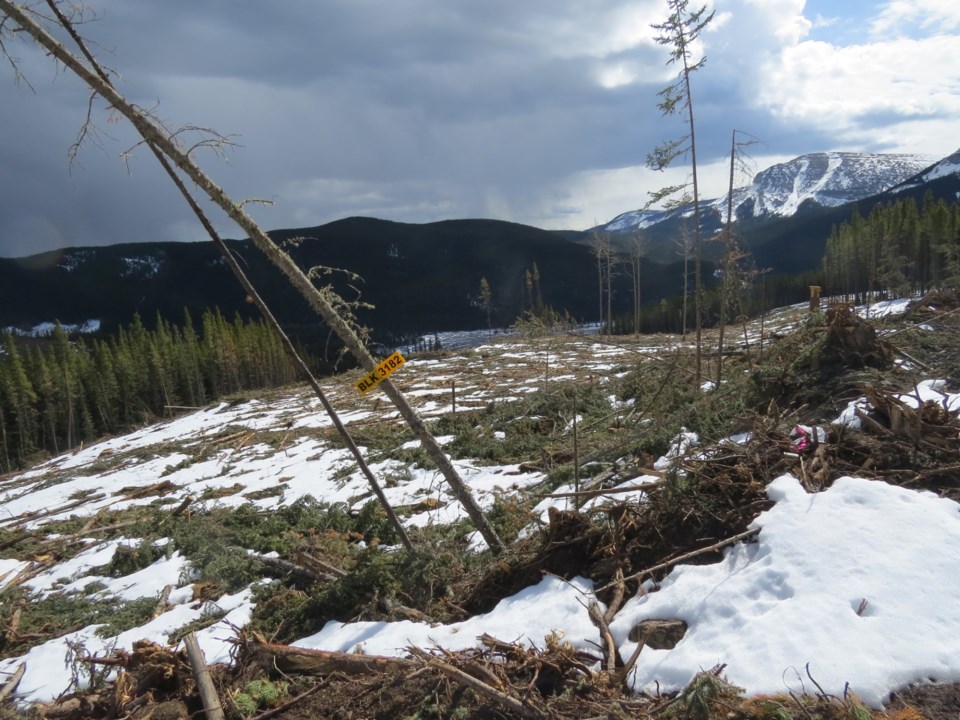Some environmentally-minded Bragg Creek people who think their wild surroundings are worth fighting for have revived a group looking to find a way to live with nature without loving it to death.
The new “old” environmental group of long time and newer residents has officially revived the Bragg Creek Environmental Coalition (BCEC) to maintain a fully functioning foothills ecosystem for future generations of humans and non-humans.
BCEC was founded in 1995 and persisted until 2017 when critical founders moved away from Bragg Creek. They were instrumental in the 2007 Bragg Creek Area Structure Plan and limiting the Kananaskis clearcuts of 2012 enabling Bragg Creek Trails to maintain a forested network of trails. The long and solid financial history of BCEC elevates eligibility for grant funding for the conservation projects they hope to create.
A spokesman for the group, who asked not to be named, said some of the older members who fought the 2012 clearcut issue may be tired, so a revival is important.
“A lot of the people who are a part of BCEC are wounded old soldiers left over from the 2012 campaign,” he said with a laugh.
Forests, rivers and bears don’t observe the lines that humans draw on maps, so it makes little sense to confine environmental activism to specific geopolitical boundaries.
In addition to issues like bears and cougars roaming into the hamlet, impending plans to clearcut forests in West Bragg Creek and Kananaskis will also be high on BCEC’s radar starting now.
“We hope to avoid the overwhelming growth of places like Canmore and Fernie and maintain the greenspace of a ‘Trailhead Community,’” said executive director Dave Klepacki.
The group also wants to move beyond the borders of Bragg Creek to collaborate with other larger organizations in lobbying the provincial government to reform current environmental and forestry legislation they consider archaic.
They want to get more active in the preservation of habitats throughout the Bow Valley.
Klepacki has a PhD in geophysics and some hydrogeology experience from working in the oil and gas industry for 34 years.
He said his current interest in the environment as “atoning for my sins,” with a laugh.
Klepacki said issues like the controversial 2,700 acre clearcut Spray Lake Sawmills (SLS) has planned in Kananaskis are as much about preserving the watershed as protecting the at-risk bull trout and protecting aesthetic values for recreational users.
“I’m quite concerned about the flow levels on the Elbow River right now. So if you clearcut, the water runs off so fast, you don’t replenish the aquifer,” he said.
“We’re going into the winter with a depleted aquifers. There are wells here in Bragg that are four metres below normal levels,” he said.
A vibrant and engaged non-profit organization is key to maintaining the ability to apply for grants and other financial assistance if the BCEC hopes to fund the science required to lobby the government to update antiquated legislation, Klepacki said.
For now, he said they’re watching the new owners of SLS – BC’s West Fraser Timber Co. – closely.
“Our general status is waiting to see where West Fraser is going with the plans. BCEC’s idea is to collaborate with the other conservation groups in the area, such as Bragg Creek & Kananaskis Outdoor Recreation, Canadian Parks And & Wilderness Society, Alberta Wilderness Association, the Highwood River group, and the Ghost group,” he said.
West Fraser issued a statement to The Eagle last week saying there was no logging equipment being moved into the Highwood area in Kananaskis, and that they were planning on engaging stakeholder groups in meetings “to better understand perspectives, interests and issues pertaining to these important forest lands.”
Klepacki said as encouraging as that news may be, there’s a lot of science that needs to be done, to educate the provincial authorities.
“BCEC’s current aim is to do some science like looking at the effect on the Ranger Creek wetlands, on some old growth refugia (groves of old trees that have survived the fires over the last 300 years) and maybe some work on any endangered bird species in area come springtime,” he said.
Their legal team will lobby politicians to renew Alberta’s Public Lands Act, Forestry Act, Water Act, and Wildlife Act.
World-renowned wildlife biologist Brad Stelfox is on BCEC’s advisory board.
According to Stelfox, the only other place on earth besides Bragg Creek with the biodiversity and rich wildness so close to more than a million people is Nairobi National Park, adjacent to the 4.4 million people of Nairobi, Kenya.
Projects Klepacki foresees include: limiting clearcutting in the East Kananaskis area; mapping old growth forest as genetic reservoirs for maintaining ecosystems; creating an environmental reserve within the Elbow River floodway habitat upstream from the Bragg Creek bridge; continuing to monitor wildlife sightings and animal movements in the greater Bragg Creek, Redwood Meadows and Highway 762 areas; and, mapping the wetlands in the greater Bragg Creek area (including Jumping Pound Creek) to better understand resiliency to drought and floods.
Klepacki added an overarching legal/philosophical goal as well – one that has recently been identified by many environmental advocates weighing in on the clearcutting in Kananaskis.
“Our goal is perhaps most importantly, to advocate for modernizing the legal structure of nature’s endowment in Alberta from exploitative to sustainable,” he said.
The Canadian Parks and Wilderness Society sponsored a Zoom presentation on Dec. 14 featuring UBC professor Dr. Younes Alila, a specialist in forest hydrology, who showed research confirming the negative effect clearcutting has on forest watersheds, and the long-overdue need for North American forestry legislation to catch up with science.
Alila closed with a dire warning to governments who ignore the call for improved forest management practices. He said they are risking taxpayers’ money, which will be needed to pay for costly lawsuits, which he claimed would be inevitable as the improving science continues to make the case.
“Time is running out on us,” Alila said.
For more information on BCEC email [email protected]




